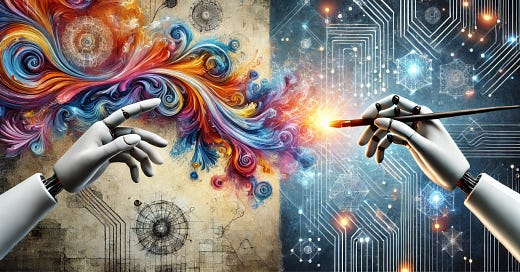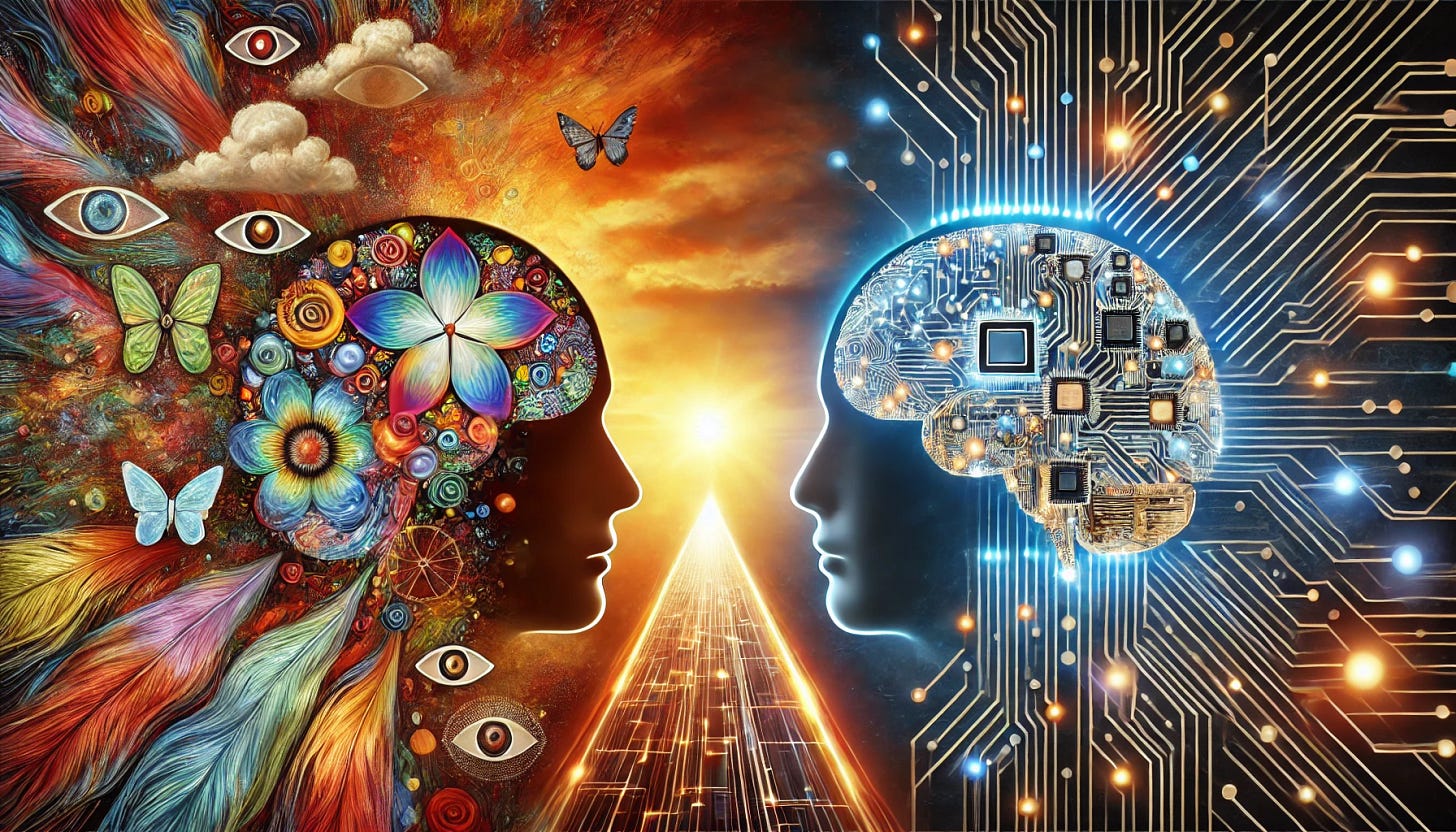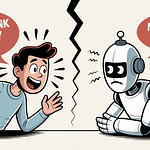Have you ever caught yourself asking AI for advice? I did just that recently. I needed help figuring out how to handle a tricky conversation with an acquaintance, so I turned to an AI system for guidance. The advice was surprisingly on point—so good, in fact, that I followed it, and the conversation went better than I expected. (Yes, there's definitely some irony in using artificial intelligence to become better at human interaction.)
But after that successful conversation, I couldn't help wondering: Did the AI actually understand anything about human relationships? Or was it just really good at piecing together the right words from its vast training data? After all, think about it—this AI has never sat across from someone during an awkward silence. It's never felt its heart race before a difficult conversation. It's never experienced that wave of relief when a tense situation finally resolves. Yet somehow, it gave me advice that actually worked.
I find myself thinking about this question more and more as AI becomes a bigger part of our daily lives. Look at what's happening: ChatGPT helps people understand difficult ideas, Claude discusses deep philosophical questions, and AI can write content that really connects with readers. But here's what keeps me up at night: Are these AI systems actually understanding what they're talking about? Or are they just incredibly advanced at recognizing patterns and stringing together the right words?
Caption: Claude's response when asked what is the meaning of life.
Understanding: The Human Experience vs. Machine Processing
Think about how we humans understand things. We don't just know something—we've lived it, felt it, experienced it firsthand. Take the word "home," for example. When you hear that word, what comes to mind? Maybe it's the smell of coffee brewing in the morning. Maybe it's the way sunlight falls across your favorite chair, or the familiar creak of that one floorboard near the kitchen. We understand "home" through years of lived moments, both big and small. That's understanding based on real experience.
Now compare that to how AI works with the same word "home." The AI has seen the word "home" millions of times in its training data. It knows that when people write about home, they often mention words like "warm," "safe," and "family." It can write beautiful descriptions about the meaning of home because it's analyzed thousands of poems, stories, and articles about home. But here's the key difference: the AI has never actually felt the comfort of walking through its own front door after a long day, never experienced the peace of being in a space that's truly its own.
The Comprehension Challenge: Searle's Chinese Room
The book "Deep Learning" by Ian Goodfellow, Yoshua Bengio, and Aaron Courville originially inspired this newsletter. One of the concepts included in the book is "the Chinese Thought Room Experiment."
Imagine you're in a room with a huge manual of Chinese language rules. You don't speak a word of Chinese, but when someone slips notes written in Chinese under the door, you can use the manual to figure out exactly which Chinese characters to send back. To the person outside, it looks like you're fluent in Chinese—but you don't actually understand anything you're writing.
This is what philosopher John Searle came up with to explain how computers work. They're like that person in the room—following incredibly sophisticated rules to put together responses, but not really understanding what they're saying. Sure, today's AI systems are mind-bogglingly more complex than looking things up in a manual, but the basic question remains: Is getting better at following rules the same thing as truly understanding?
Why Machines Still Struggle with Real Understanding
Let's break down why AI systems, despite all their impressive abilities, still face some fundamental challenges:
They Can't Feel What We Feel Think about learning to ride a bike. You can read about balance, momentum, and proper posture all day long, but nothing compares to that moment when someone lets go of the seat and you're suddenly doing it yourself. AI can process millions of descriptions of bike riding, but it's never felt that rush of wind in its face or that surge of triumph at staying upright.
They Miss the Little Things That Matter We humans pick up on countless subtle cues without even thinking about it. When a friend says "I'm fine" but their voice tightens slightly, we know they're probably not fine at all. AI can be programmed to recognize these patterns, but it doesn't instinctively understand them the way we do.
They Don't Really Learn from Experience While AI can process new information, it doesn't experience personal growth the way humans do. Each awkward conversation we have teaches us something new about handling similar situations in the future. For AI, each interaction is essentially starting fresh.
Researchers are working hard to make AI more "human-like" in its understanding. They're teaching AI to grasp cause and effect (like understanding people carry umbrellas because it might rain, not just that umbrellas and rain go together), helping it process multiple types of information at once (like how we use all our senses to understand the world), and making it better at following long conversations.
Think of AI as being like someone who's read every book in the world but has never actually experienced any of it firsthand. It's incredibly powerful at spotting patterns, analyzing data, and putting together information, but it lacks the deep understanding that comes from lived experience. The goal isn't to replace human understanding but to combine the best of both worlds: AI's incredible processing power with our human experience and intuition.
Looking Forward
The real question isn't whether machines can understand us exactly the way we understand each other. Maybe that's not even the right goal. Instead, perhaps we should be asking: How can we best work with these incredibly powerful tools while recognizing both their capabilities and their limitations?
Vocabulary Key
Qualia: The personal, subjective experience of sensations (e.g., the smell of coffee or the color red).
Chinese Room Thought Experiment: A philosophical argument suggesting that following instructions doesn’t equal true understanding.
Causal AI: AI that focuses on cause-and-effect reasoning, beyond patterns.
FAQs
Can machines ever feel emotions? No, machines lack subjective experiences like emotions. They can simulate responses but don’t feel.
What is the main limitation of AI understanding? AI lacks personal experiences, making its understanding surface-level and abstract.
Will machines ever achieve human-like understanding? It’s uncertain. They may develop their own unique type of understanding, distinct from ours.
#ArtificialIntelligence #DeepLearning #CausalAI #MachineLearning #AIResearch #AIUnderstanding

















Share this post